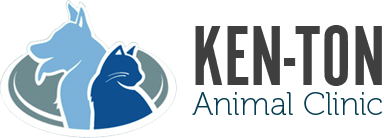Library
-
Clotrimazole topical is an antifungal used in the treatment of surface skin infections caused by fungal organisms in cats, dogs, rabbits, birds, reptiles, and other animals. Clotrimazole topical comes in a variety of forms that may be specially compounded and/or be combined with other medications. All forms are applied topically.
-
Cyclophosphamide is given by mouth or injection and is used off label in cats, dogs, horses and rabbits to treat various cancers, such as lymphoma, leukemia, carcinoma, and sarcoma.
-
Rabbits have incisors plus molars in the back of the mouth for grinding and chewing. Rabbits also have two small, tube-shaped incisors (peg teeth) behind the large upper incisors. Since the teeth continuously grow, the upper teeth must meet the lower teeth to allow for proper wearing of tooth surfaces, preventing overgrowth. All teeth must meet and wear at the same rate as they are growing, or improper tooth wear and overgrowth of the incisors and/or molars can occur. Overgrown teeth can cause many problems and lead to pain and infection. Rabbits with chronic dental problems need regular veterinary care. Feeding rabbits a diet of mainly high-fiber hay to promote chewing and teeth wear may help reduce the development of dental problems.
-
Dexamethasone ophthalmic is a topical steroid medication used to treat inflammatory eye conditions in cats, dogs, rabbits, avian species, and other animals. Dexamethasone ophthalmic may be used alone or in combination with an antimicrobial. Dexamethasone ophthalmic comes in ointment and liquid drop form. Avoid use in animals with corneal ulcerations or corneal infections.
-
Information from Drugs.com, provided by Zoetis.
-
Diclofenac ophthalmic is a topical nonsteroidal anti-inflammatory medication used to treat inflammatory eye conditions in cats, dogs, rabbits, avian species, and other animals. Diclofenac ophthalmic comes in liquid drop form.
-
Diphenhydramine is given by mouth or as an injection and is used on and off label to treat allergic reactions, motion sickness, and to induce sedation. Side effects include sleepiness, and less commonly dry mouth and gastrointestinal upset.
-
Information from Drugs.com, by Cerner Multum, as well as the Plumb's Veterinary Drug Handbook, 7th Edition, by Donald C. Plumb.
-
Docusate (Docusate Sodium Bloat Preparation, DSS, Dioctynate®, Pet-Enema®, Enema SA®, Docu-Soft®, Anti Gaz, Bloat Eze, Bloat Go, Bloat Release, Bloat Treatment, Bloat-Lax) is a laxative medication used to soften dry or hard stools and assist with constipation and bloating in animals. It is prescribed for use in dogs, cats, horses, cattle, goats, sheep, and rabbits, but is not recommended for reptiles due to potential fatalities.
-
Information from Drugs.com, by Melisa Puckey, as well as Plumb's Veterinary Drug Handbook, 7th Edition, by Donald C. Plumb.

